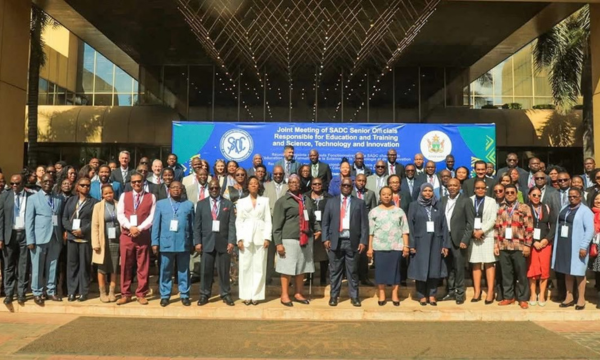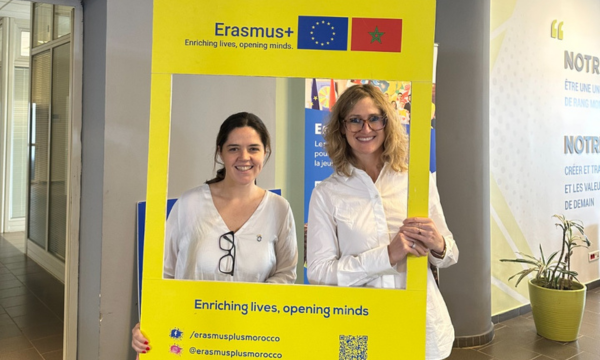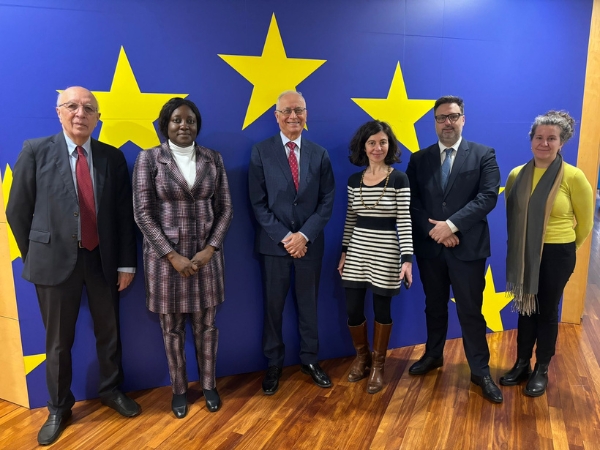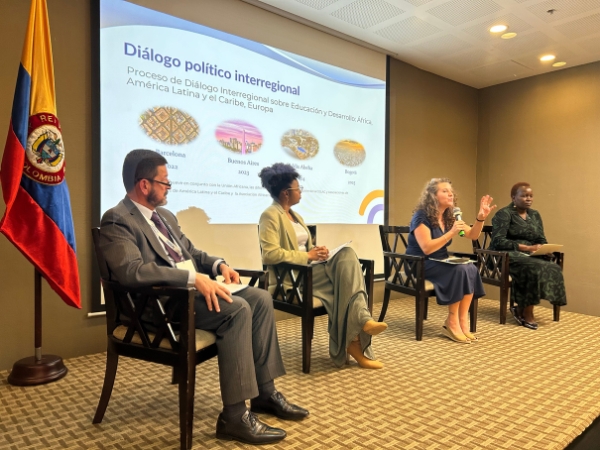OBREAL, in collaboration with the Ministry of Education of Argentina, the pro-tempore presidency of CELAC (Community of Latin American and Caribbean States) and the Generalitat de Catalunya, hosted an unprecedented interregional dialogue at the prestigious Palau de Pedralbes in Barcelona.
The event focused on “The Role of Development Cooperation and Higher Education in South-South-North Interregional Cooperation”. All in all, it attracted government representatives and distinguished academics from around the world.
High-level government representatives from countries such as Antigua and Barbuda, Mexico, Argentina, Senegal, Mozambique, Côte d’Ivoire and South Africa…. High-level delegates from the African Union Commission, Spain, Finland, Sweden, Catalonia and Norway. They all gathered in Barcelona to discuss key issues. The Interregional Dialogue also witnessed the active participation of universities and university associations from Africa, Latin America, the Caribbean and Europe.
Outcomes of the interregional dialogue in Barcelona
Altogether, key outcome of the event was the joint effort by OBREAL, the CELAC Presidency and the African Union Commission to formulate a comprehensive interregional work plan. This collaborative approach aims to address the multiple challenges faced by different ‘Souths’ and ‘Norths’. It also aims to foster stronger links and cooperation between the regions.
The interregional work plan focuses on three key areas of interest to universities and their contribution to global progress:
- Climate change
Participants recognised the urgent need to address climate change through academic research, knowledge sharing and innovative solutions. This shared commitment underscores the role of higher education institutions in promoting sustainable practices and finding strategies to mitigate climate change.
- Employment and skills
The dialogue highlighted the importance of equipping students and professionals with relevant skills and knowledge that meet the needs of the labour market. Certainly, by focusing on employability, universities can play a key role in shaping a skilled workforce that drives economic growth and development.
- Open access and free circulation of scientific products and results
Emphasising the importance of equitable access to scientific knowledge, the Dialogue advocates open access to research results and academic resources. Generally, this approach is seen as critical to fostering global collaboration, advancing knowledge and collectively addressing societal challenges.
The interregional dialogue in Barcelona brought together diverse perspectives, ideas and expertise. Furthermore, it set the stage for future collaborative initiatives that transcend geographical boundaries. OBREAL remains committed to supporting this collective endeavour and looks forward to facilitating meaningful progress on the common agenda identified.






